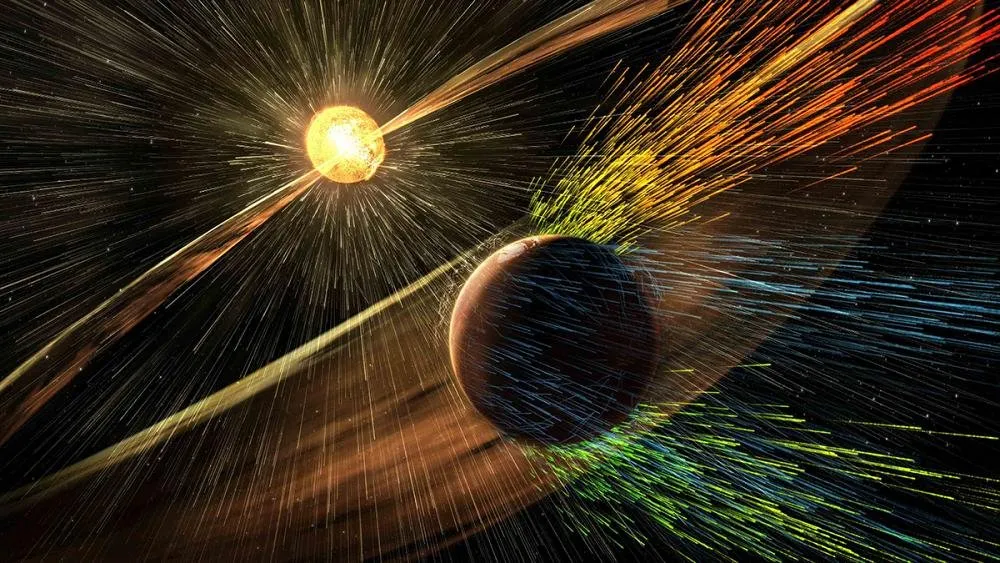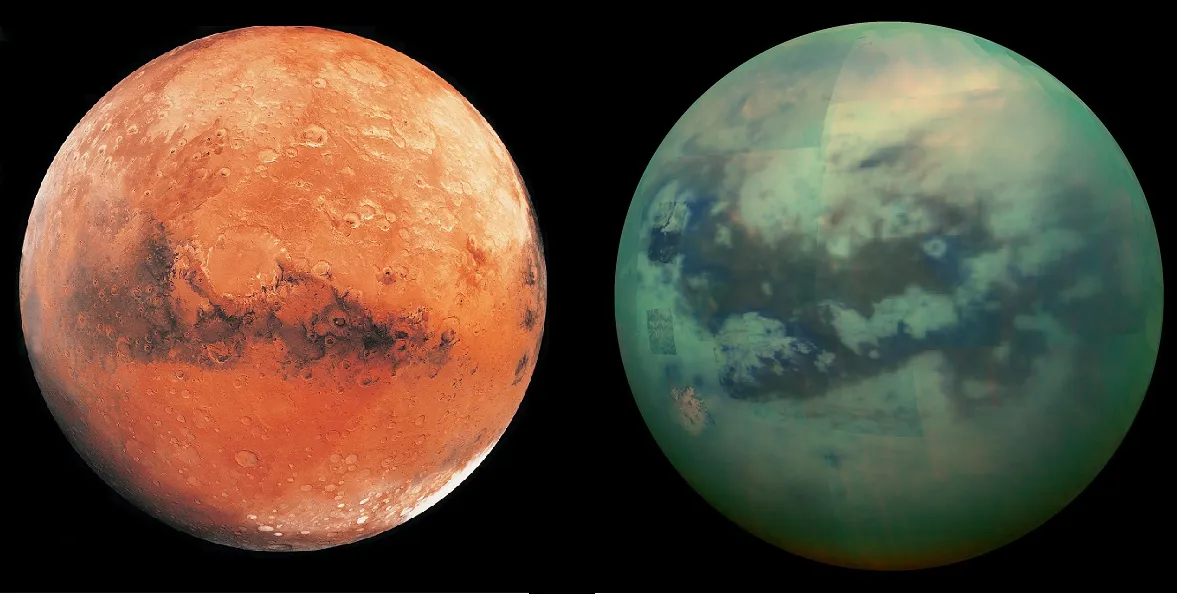
There is nothing surprising in the fact that humanity sees Mars as a place for the first colony in Space. Venus is about two times closer to Earth than Mars but has a very toxic atmosphere, pressure 92 times greater than on Earth, and because of the greenhouse effect the surface temperature reaches 450 °C.
Even robots can't normally "live" on Venus, the current record of functioning spacecraft on the surface of this planet is 2 hours!
Moon is closer than Mars, but there is almost no suitable materials for construction, so all have to be delivered from Earth, and the colony will not be autonomous.
Temperature on Mars is about -50 °C, there are reserves of ice, which allows to synthesize the fuel and oxygen, energy can be generated from solar panels. That's why we look to Mars with the hope, although it has serious flaws... Mars has an atmosphere, but it is very rarefied and the planet don't have magnetic field, so the protection from solar radiation is very weak.
Scientists believe that Mars lost its protection around 4.2 billion years ago, when its core has ceased to be liquid, that led to the loss of the magnetic field that held the atmosphere. In the next 500 million years the solar wind literally blew away the atmosphere.
Background radiation on the surface of the red planet in 2.2 times higher than on ISS - is essentially the boundary of the permissible limits for humans. On Mars people will be exposed to 8 rad per year (on Earth this value is 0.62 rad per year). But during Strong solar flares the radiation background on Mars sometimes jumps to 2000 rad per day. ie humanity can't count on life on the surface, there is no technology that can protect against such radiation doses.
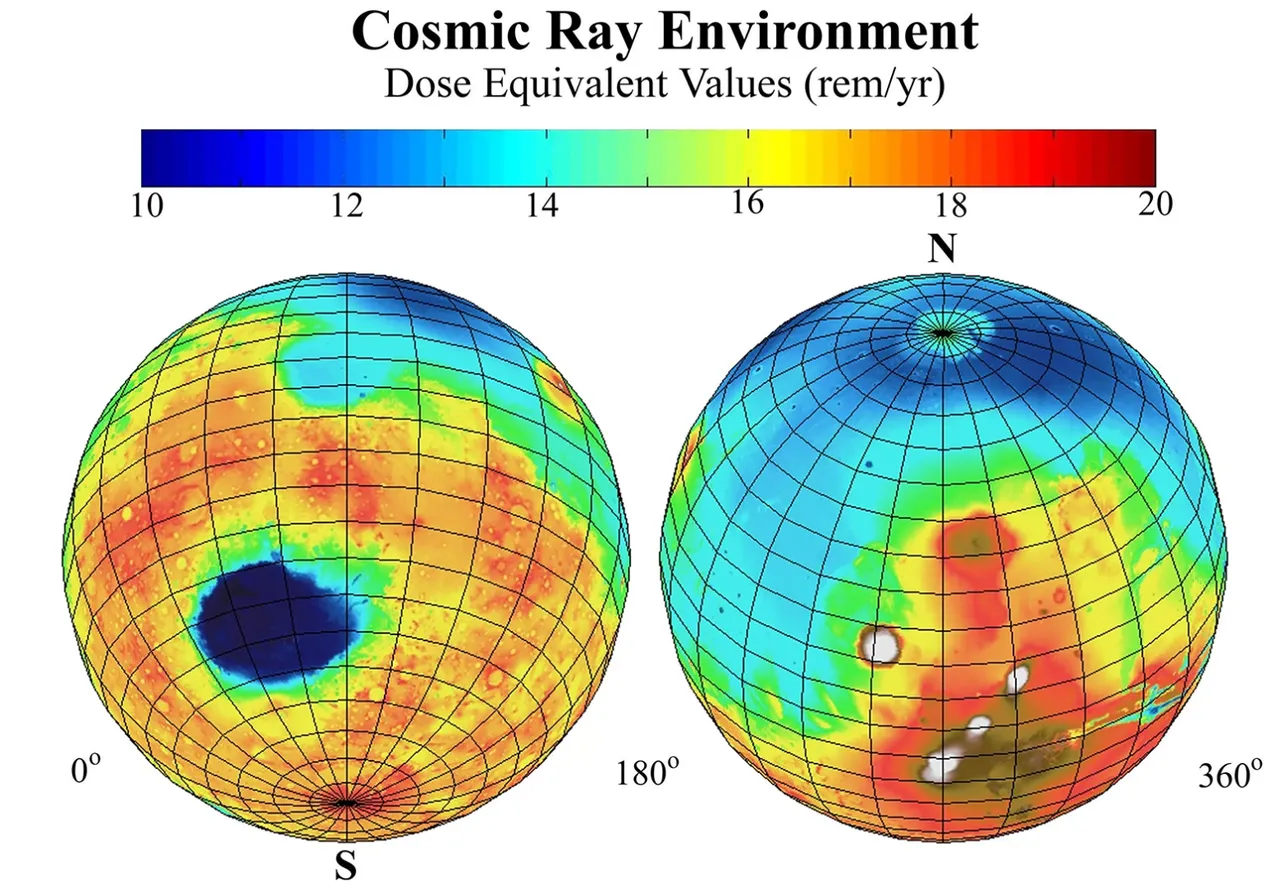
At the moment the only solution is the construction of colonies under the ground. But it will require huge costs to the delivery of equipment, conducting of excavations and construction works below ground. With the same success we can start to build under the ground on our planet.
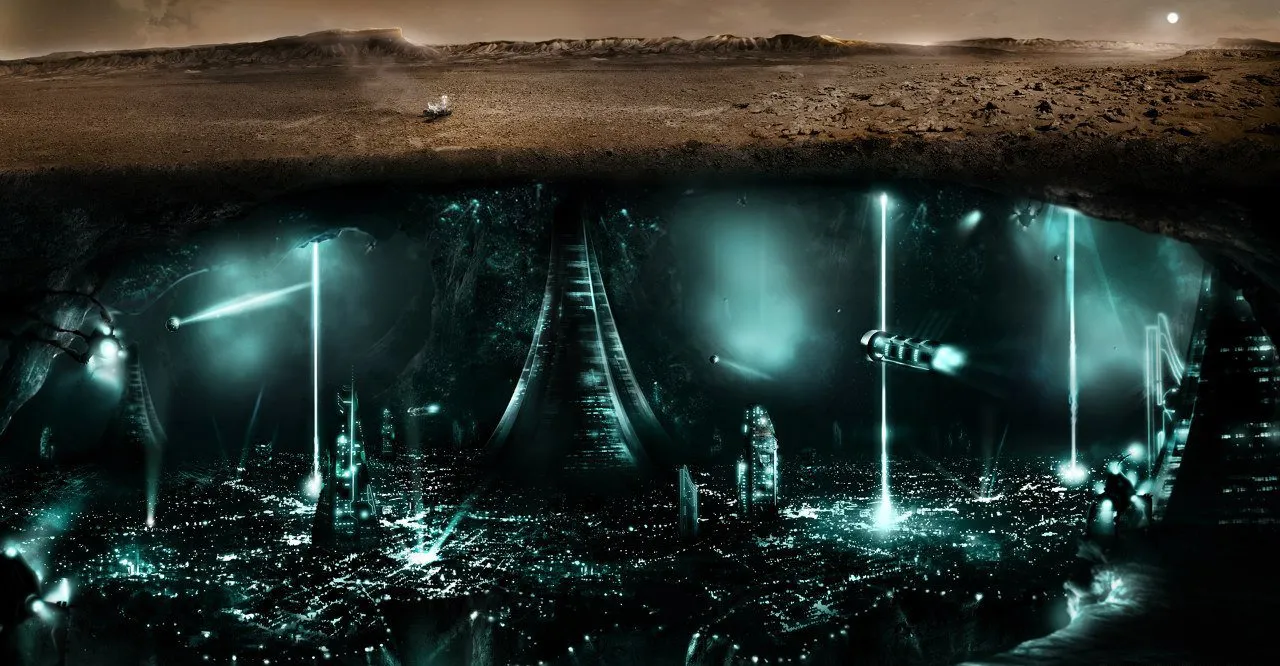
Therefore, scientists recommend to pay attention on Titan. It is the largest moon of Saturn and the only object in our solar system which has a fairly dense atmosphere to protect from cosmic radiation.
The atmosphere of Titan consists of 95% nitrogen and its density is 50% higher than earth's atmosphere. Low temperature (-180 °C) does not allow to stay on the surface without a spacesuit, but enough to cover the work area with a heated dome, that will allow to travel on the surface with only a breathing mask. (On Mars this dome can't protect against radiation).
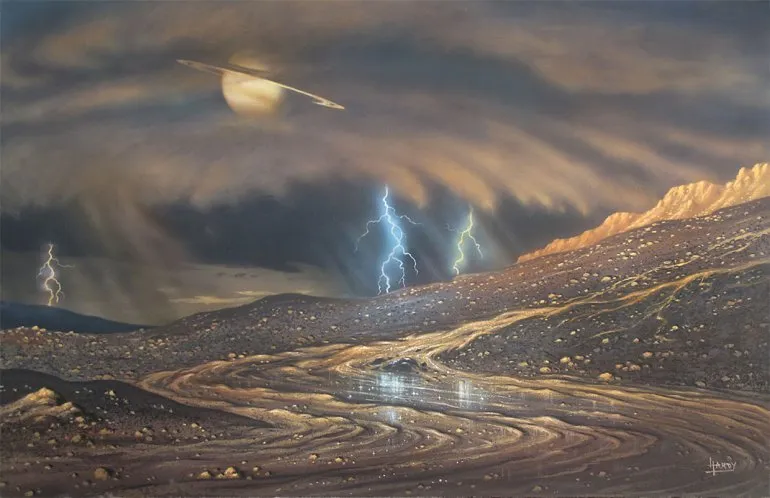
And the main advantage of Titan: seas and lakes of methane and ethane (here is the missile fuel) and dunes of solid hydrocarbons that are the perfect source for the production of various materials.
The absence or low amounts of hydrocarbons on Mars is a serious problem- now Elon Musk is actively thinking how to start the synthesis of hydrocarbons on Mars to reduce its dependence on supplies from Earth.
Without going into details of the importance of hydrocarbons to humans, In other words is oil. Hydrocarbons is a source for the production of: polyethylene, plastics, rubber, synthetic fibers, dozens of chemicals.
Hydrocarbons provide autonomy for the colony, which after starting their recycling can develop itself without supplies from Earth. According to preliminary estimates, the reserves of hydrocarbons on the Titan in hundreds times more than on Earth.
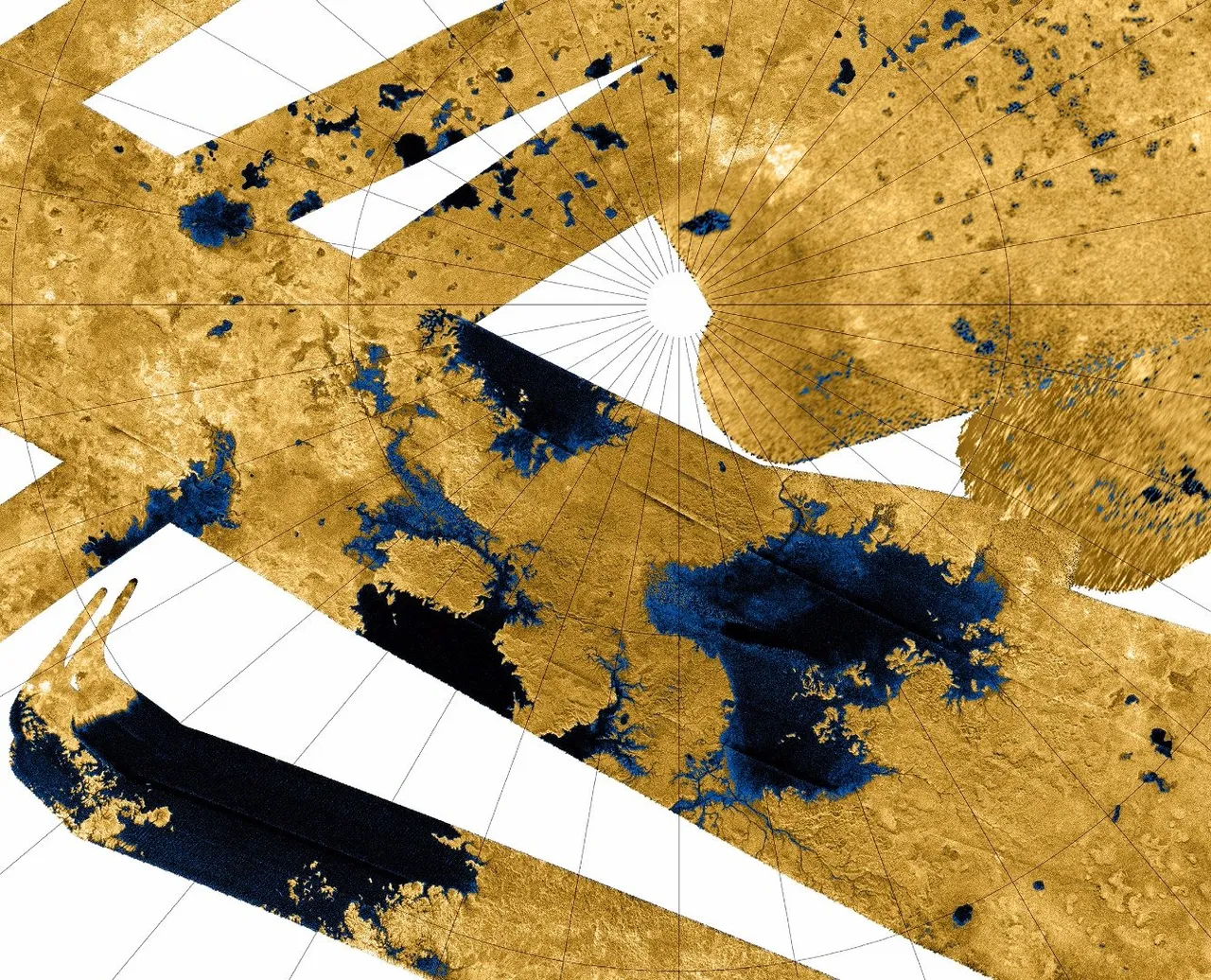
Right under the surface of Titan are huge deposits of water ice. From there you can easily extract oxygen for breathing and combustion of hydrocarbons.
But, let's add a modicum of objectivity, moreover we considered the disadvantages of Mars. It is difficult to say that Titan has the "perfect" conditions for life of people. And in fact scientists are highly overrated its advantages over Mars.
Low gravity (7 times below Earth's) can cause diseases of the muscles and deposition of calcium in the body. Gravity on Mars is only 3 times lower.
Low temperature, the average value of -180 °C. The average temperature on Mars is -50 °C. Ie we have gone from the problem of radiation protection in space suits, but it is necessary to solve the problem of heating and insulation, including for residential premises.
More dense and poisonous atmosphere, the pressure is 1.5 times below Earth's. Methane rains with a mixture of hydrocarbons (particulate matter), which can cause damage to fragile coatings- it is necessary to increase the strength of building materials.
For the synthesis of oxygen from the ice, need to deploy nuclear power plants. The same thing must be done on Mars. BUT! On Mars the explosion of such a station will remain local. And if such station will explode on Titan it will ignite the entire surface of the planet due to the large amount of methane. This will turn the Titan into a second Venus, with a huge greenhouse effect.
And the main problem is the distance from Earth to Titan. With the modern engines, the one way travel will take 7 years! Flight to Mars takes between 150-300 days. This makes impossible to support normal communication with the colonists and doesn't allow to respond quickly to a critical situation.
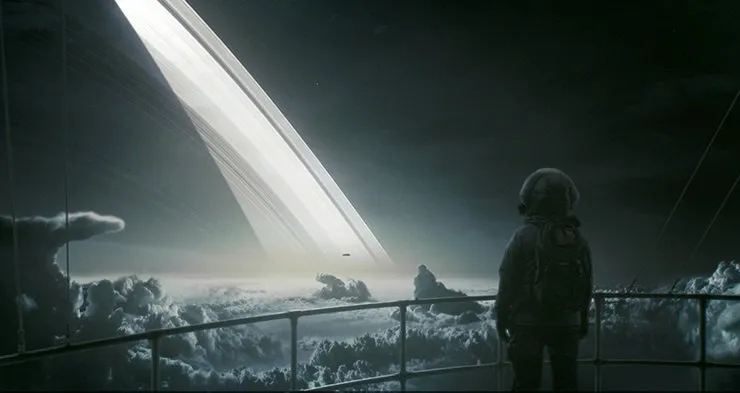
So at this point, colonization of Titan - it's only dreams, while a colony on Mars can be implemented in the next decade. No doubt that Titan will be the main purpose of humanity immediately, after solving the problem the speed of movement in Space.
sources: Lets colonize Titan, Titan is better than Mars, Colonization of Titan, Colonization of Mars, Titan, Mars, Odyssey images from WiKi, www.nasa.gov and Google search
